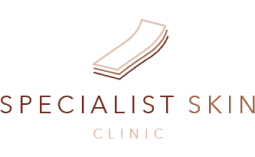What Is Vitiligo?

Vitiligo is a melanocyte (pigment cell) disorder, which results in areas of the skin or hair losing their pigmentation. Pigmentation is the brown colour in the skin. The disorder is no more common in Asians than in any other ethnic group, nor is there a gender predominance. Global incidences vary between 0.5 to 2 percent. However, the impact is often more visible among ethnic groups with darker skin, due to the sharper contrast between the depigmented areas and normal skin. The precise cause of vitiligo is unknown, though genetics are thought to play a role as between 6 to 38 percent of patients have a family history of the disorder. There are three main schools of thought behind what causes the loss of epidermal melanin:
Autoimmunity: this occurs when the bodies immune system attacks its own cells. Autioimmune disorders such as diabetes mellitus and thyroid disorders are often found in patients with vitiligo or their immediate relatives. As such, it is postulated that vitiligo arises when circulating autoantibodies target the melanocytes resulting in loss of function.
Autocytotoxicity: a defect in free radical defence results in increased sensitivity of the cell to oxidative stresses, leading to melanocyte death.
Neurogenicity: it is thought that nerve endings in the skin may produce neurochemicals which are toxic to the melanocytes.
There are no proven measures to prevent vitiligo. However we know that vitiligo can appear in areas of the body that have been injured by cuts, abrasions of burns. As such, those who have vitiligo should attempt to avoid any kind of repeated trauma to the mselves especially the extensor area of their limbs. There are many treatments available to those with vitiligo. Topical steroid creams are effective in up to 50 percent of patients. Results are usually seen in the first three months of treatment. However,as these creams can cause side effects such as thinning of the skin, patients should be regularly monitored by a skin doctor. Immunomodulator creams such as tacrolimus and pimecrolimus work by reversing the immune attack on the pigment cell. As they do not contain steroids, they can be used for longer periods. Lastly, creams containing Vit D compounds have also been found to be effective in some patients.
Those with moderate to severe vitiligo can be treated with ultraviolet light. Patients are exposed to narrow band UVB rays in a light box two to three times a week. This treatment is safe for children and pregnant women, as no oral medication is involved. Alternatively, there is PUVA, whereby a chemical (psoralen) is administered topically or orally to render the skin temporarily sensitive to UVA light. As this treatment involves potential side effects and requires sun protection precautions, it may not be suitable for all patients. Excimer lasers can also be used to treat patients with vitiligo. Their advantage is that one can treat single patches, thus sparing the non- affected skin. The laser is administered twice a week. Significant repigmentation of up to 75 percent has been reported in about half of patients treated, with areas on the face responding best. Surgical options, in the form of tissue or cell grafts, can be considered when topical and light therapies have failed. Only stable cases,where there are no new lesions or progression of existing lesions for 12 to 24 months are suitable for grafting.
The last resort when treating vitiligo is depigmentation. It involves the application of monobenzyl ether of hydroquinone daily for a period of nine to twelve months until the skin is evenly bleached. The results are irreversible so this treatment should only be embarked upon after extensive counselling and consideration.

| Main Line | : (65) 6734 1411 |
| Fax | : (65) 6235 5900 |
| Mon - Fri | : 8:30am - 5:00pm |
| Sat | : 8:00am - 1:00pm |
| Closed on Sundays and Public Holidays | |

